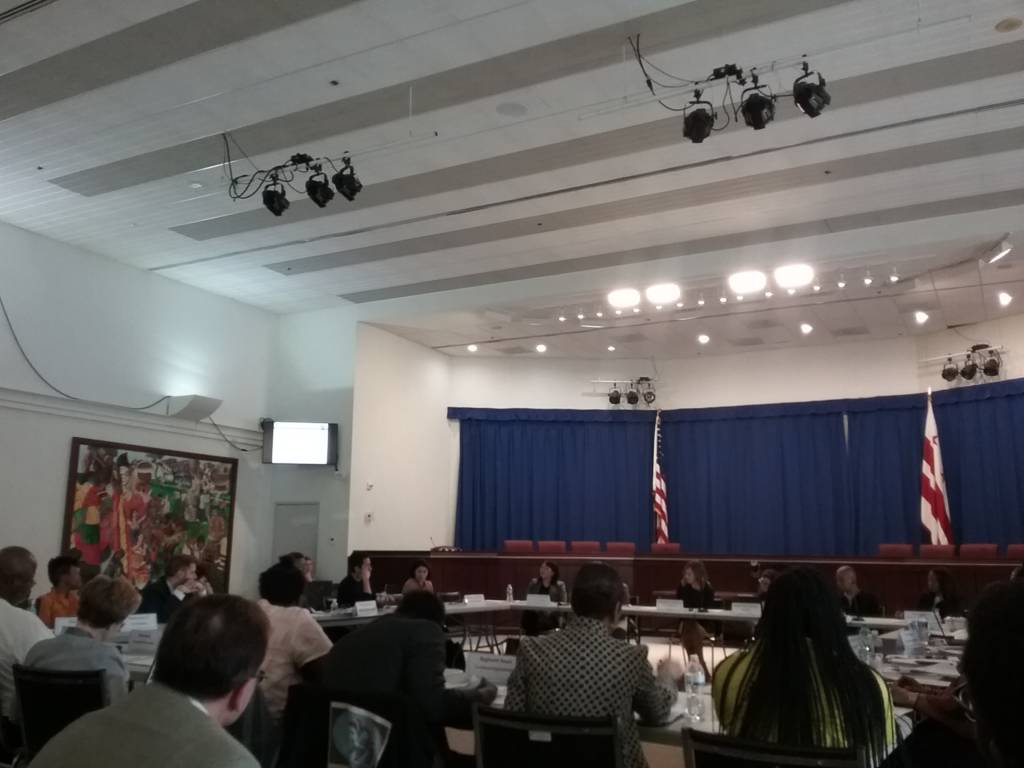At the quarterly Interagency Council on Homelessness (ICH) meeting on April 9, members met to discuss and make last-minute suggestions for the draft of the Homeward D.C. progress report, which must be submitted to and approved by Mayor Muriel Bowser before the creation of Homeward D.C. 2.0.
Homeward D.C. is ICH’s plan to make homelessness in the District rare, brief, and non-recurring. As per the Homeless Services Reform Act, ICH is required to submit a progress report to the Mayor which details progress made, identifies changes in the landscape of homelessness, and details resources and strategies needed to support implementation. The update must be based on data, provided mainly by The Community Partnership for the Prevention of Homelessness (TCP), and on community input provided by ICH committees and workgroups.
At the quarterly meeting, ICH Executive Director Kristy Greenwalt detailed the progress made under Homeward D.C. thus far. According to Greenwalt, the greatest improvement has been made in family system reform, with a 38 percent decrease in family homelessness seen in the first two years of implementation. This decrease has been due to prevention assistance, which has served over 6,300 households, enhanced shelter programming, and the availability of a housing resource for every family entering a shelter. An even greater reduction is expected after the 2019 point-in-time count data are released.
For single adult system reform, the strategy was to move chronically homeless individuals into permanent supportive housing to reduce the number of shelter beds being taken up every night by the same people. Over 4,800 single adults exited homelessness to housing, but according to Greenwalt, individuals were entering homelessness as quickly as they were exiting. Only 60 percent of the rapid rehousing slots called for in Homeward D.C.’s single adult reform were provided between 2015 and 2018. During the same period, there was a 20 percent increase in the number of single adults touching the homeless services system each year.
Greenwalt explained that the homeless veteran population is often used as a pilot group to test strategies to be extended to the entire single adult population. Federal programs such as VASH vouchers, the Supportive Services for Veteran Families program, and the Rapid Resolutions diversion program helped to lead to a 25 percent decrease in veteran homelessness from 2014 to 2018.
One of the challenges ICH will face with Homeward D.C. 2.0 is the capacity of providers. According to Greenwalt, there is enough federal funding that many current providers don’t need to compete and expand. Some possible solutions are to switch to private sector providers and to work to improve partnerships with federal programs.
It has also been difficult to stimulate system-wide changes while trying to work within the system to end homelessness. As Greenwalt put it, “It’s hard to build the plane while you’re flying it.” Changes have taken place over the course of the Homeward D.C. program. For example, housing costs have increased since the program first began.
ICH has also come to realize that some populations, such as single adults, are more vulnerable than they originally thought. Diversion programs, employment programs, and partnerships with regional providers will help to cater to the unique needs of these populations, and will be scaled to provide more intensive care to individuals who need it and less intensive resources, such as employment connections, to those that only need a little help.
Racial equity was another topic that emerged during the discussion of vulnerable populations. According to Greenwalt, while only roughly 40 percent of the District’s population is African American, about 97 percent of homeless families are African American, and about 80 percent of homeless individuals are African American. Reginald Black, a constituent representative at the meeting and a vendor with Street Sense Media, said it is vital to keep this racial inequity in mind when going forth with affordable housing policies.
Representatives at the meetings made recommendations for minor language changes to the Homeward D.C. progress report and the ICH voted unanimously to submit it to Mayor Muriel Bowser. Once approved, it will be released publicly.








